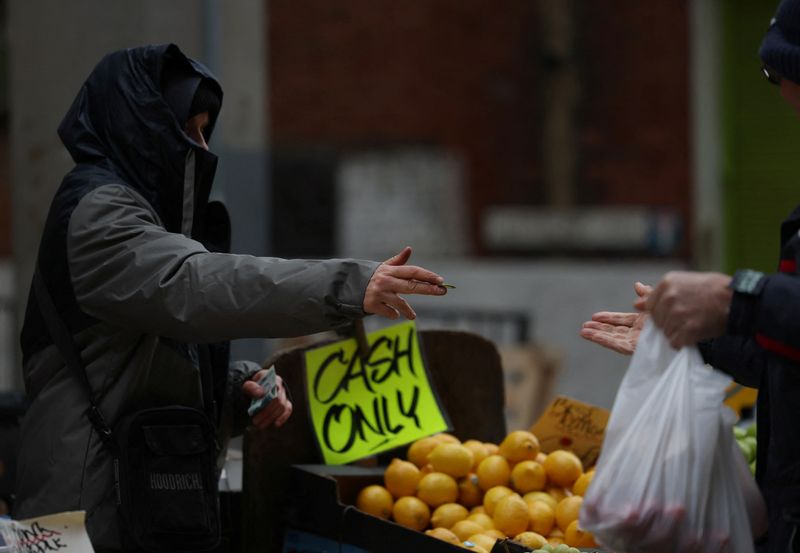By David Milliken
LONDON (Reuters) - British consumers and businesses used cash in just 12% of transactions last year, a record low, although there was a rise in the small percentage of people who use cash for most day-to-day purchases, industry data showed on Wednesday.
Cash usage in Britain, like in most countries, has fallen sharply over the past decade, accelerated by the COVID-19 pandemic which encouraged contactless payments and also by reduced costs for smaller retailers to accept cards.
Last year 39% of British adults - 22.1 million people - used cash no more than once a month, banking trade body UK Finance said in its annual payments report.
However, Jana Mackintosh, UK Finance's managing director for payments, said Britain was not on its way to becoming a cashless society and forecast that cash would continue to account for 6% of transactions in 2033.
"Cash is still the second most frequently used method of payment in the UK, although we are using it less and more people are leading largely cashless lives," she said.
Cash accounted for more than half of transactions 10 years ago, but since then it has been supplanted by debit cards which were used for 51% of transactions last year. Credit card usage has stayed fairly stable at around 10%.
In the United States, a Federal Reserve survey showed cash made up 16% of payments last year, down from 31% in 2016, while a European Central Bank study found cash was still used for 59% of face-to-face transactions in the euro zone in 2022.
Around 60% of British card payments were contactless, and 42% of British adults were registered for mobile phone contactless payments such as Apple (NASDAQ:AAPL) Pay or Google (NASDAQ:GOOGL) Pay last year, up sharply from 30% in 2022.
However, UK Finance estimated that 1.5 million adults - 2.6% of the total - still mainly used cash for day-to-day spending, though most used electronic payments for monthly bills.

This represented a big jump from 0.9 million in 2022 and was the highest total since 2019.
Cash users tended to be poorer and to prefer using cash as a way to budget, although the sample size was small and UK Finance said it was hard to make reliable generalisations or to be certain that the increase was not a blip.